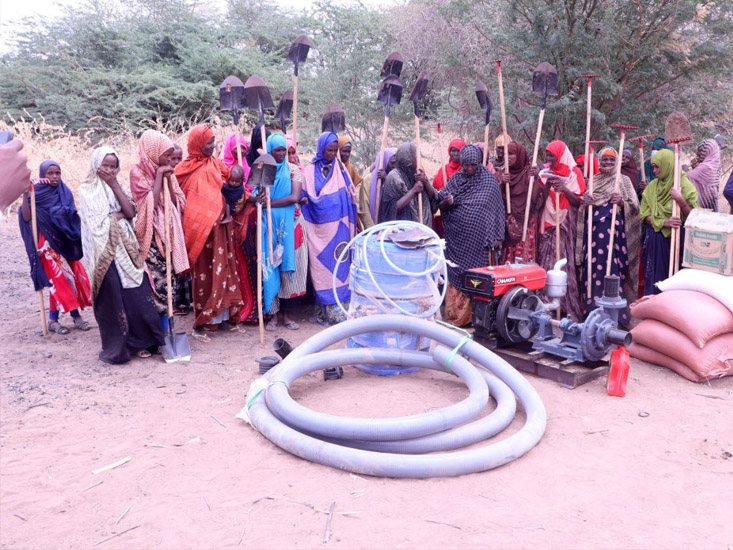
Saving Lives & Livelihood
The Dyer and Gu assessments conducted by PC and its partners in the drought-affected areas have indicated that livelihood based
interventions as the most urgent need for those who have been affected by the drought.
For this reason, PC intervened in Afdher & Liban zones which were identified as the most drought affected areas by the assessment. Accordingly, PC had supported more than 632 most vulnerable HHs to get access to complete feed for their livestock. This is a mixture of Hay and wheat bran. 1,666 quintals of Hay feed and 474 quintals of wheat bran were distributed.
A number of pastoral livestock breeders that accessed & utilized PC’s animal feed support had properly managed to improve their livelihood. (e.g. the community were able to produce quality milk and milk products. And this inturn boosted the demand for their milk and their income from sales). Furthermore, 13,932 livestock animals were treated for different diseases and 94,203 animal heads were vacinated. Priority had been given to those pastoralist households who own core breading animals; mainly cows, female camels and female shoats.
Through out this period 4 massive vaccinations were undertaken targeting areas severely affected by the drought. A total of 213,619 livestock heads were vacinated. And for this very reason currently animals are recovering and are in a very good health condition. livestock morbidity & mortality due to shortage of feed & medication significantly reduced. And this enabled the community for faster recovery and avoidance of negative coping mechanisms (e.g. livestock sales & cutting woods to make charcols). In addition to livestock feed & treatment, PC also involved in supportting drought affected communities through CfW activities to improve their livelihood situation.
Hence between June & December 31, 2017, PC transferred ETB 7,632,0008 cash for 1,590 vulnerable pastoralist HHs.
Most vulnerable members of the community targeted under CfW livelihood support showed recovery & gained access to alternative living opportunities and this in return improved their purchasing power and reduced further livelihood asset losses. In the last few months cash transfer beneficiaries had got access to commodities through credit as the traders were assured that they will be able to pay back the credit. Due to PC cash transfer support women workload reduced as they were able to buy semi-processed foods that can be easily cooked.
